
RAWALPINDI, Aug 4: President Pervez Musharraf voiced his confidence on Wednesday that Pakistan was winning its war on terrorism which, he said, the government was confronting frontally.
"We are certainly winning, that's my assessment," he said in a panel interview with Dawn at his Rawalpindi camp office. But, he said, people must understand that the government's policy of crackdown on terrorism would continue to create problems like bomb attacks of which he had also been a target.
"We are meeting success in our operations," he said while complimenting law-enforcement agencies for their operations spanning from the tribal areas bordering Afghanistan to the shores of the Arabian Sea. "I am very sure we are on a succeeding side."
The president recalled the pre-1999 period when an outlaw named Riaz Basra in the Punjab province had become a terror and could not be apprehended, and said: "Now we have got them all."
He said that although death penalties awarded to various people for terrorist acts had not yet been executed, 89 to 90 per cent of all the cases of the past three to four years had been resolved. "This is the success of law-enforcement agencies."
The president said Pakistan had at one time become a shelter for a hodge-podge of foreign militant groups mixed with "our own religious and sectarian extremism", but added: "Now we are acting against them, very actively. Previously nobody had the courage to do that.
Nobody was touching religious organisations, now we are touching them. Therefore, they will set off bomb blasts, they will create problems for you. Because we are arresting them, and ... we are eliminating masterminds.
"The nation should understand that they will keep on confronting us and this problem will be with us... (because) we take up issues and not put them under the carpet."
The president rejected a charge that his government had manipulated the October 2002 elections in favour of religious parties in order to sideline the mainstream parties such as the People's Party Parliamentarians and the Pakistan Muslim League-N.
The president said he would never support an organisation promoting extremism. "Let me tell you that I am totally opposed to any religious extremist culture in Pakistan," he said.
"I will oppose them tooth and nail wherever there is extremism, religious, sectarian, extremist fundamentalism. I am against it and I will never be a supporter of any organisation (taking such a course). He called religious extremism a danger for Pakistan.
He said the Council of Islamic Ideology had been reconstituted and he expected the reconstituted council to play a proactive role in forging an enlightened approach to religion.
Asked what gave the army the right to decide what is wrong and what is right for Pakistan, he said: "The issue is the country itself. We base it on the country. Civilians are also Pakistanis, army is also Pakistani, politicians are Pakistanis, so are you and so are we."
But he denied the army had been maligning politicians to discredit them. "We don't malign. The issue is whoever is good is good, (and) whoever is bad should be called bad."
He justified army interventions in the country's politics, saying it was done to rectify situations created by an absence of checks and balances. "If the nation is going down, there is the problem and somebody should rectify.
Now when there will be no checks and balances, then anybody can come to rectify it. If checks and balances are right, then it will be rectified within the system. Now unfortunately...there had been no checks and balances because of which army...has been coming to correct it."
He said he was against army take over and it was for that reason that the 13-member military-civilian National Security Council (NSC) had been constituted to avert such occasions in the future. "I have the full conviction that this is the only way of ensuring that army never comes in," he said.
But the president declined to say whether he would give up his office of the Chief of the Army Staff by the December 31 deadline set by the Constitution (Seventeenth Amendment) Act. He promised to talk about the matter "at the end of the month" (December) and said his decision would be guided by national interests.
"You will see how it happens. We have to take certain decisions at a certain time. We will talk about it at that time." About the army's concerns for the nation, he said: "Army has as much right to be bothered about this country as you have, as the politicians."
The president disagreed with a suggestion that the government had gone back on its programme to reform the school and college curriculum in the face of opposition from religious parties, but said the process of implementation would take three to four years.
However, he acknowledged that some minor errors were being removed although, he said, overall the new syllabuses were alright. The president was asked if the country's problems had increased or decreased since he took power in the October 12, 1999 coup in the context of economy, terrorism and the rule of law.
He boasted of what he called "1,000 percent" success in economic improvement, which will also be the main agenda of prime minister-in-waiting Shaukat Aziz. "Overall...this is the first time in Pakistan that we are confronting problems and not brushing them under the carpet," the president said. "And when you confront them, you will have aberrations, you will have problems."
He described the local government institutions as "the greatest thing we have done" because, he said, the system really addresses people's problems and empowers the poor. "But in that we have created a turmoil," he said in an obvious reference to objections from opposition parties which accuse the government of undermining provincial autonomy by powers given to the local bodies.
The president said he expected another 'turmoil' after a likely government decision in two to three months on building big dams to meet future water problems. "We will have to take a decision. I will take the risk."
The president also referred to the government's promises to reform religious madrassahs, eliminate honour-killings and prevent misuse of Hudood ordinances and a blasphemy law enforced by former president Mohammad Zia-ul-Haq.
"We are taking on each of those issues," he said, accusing the previous governments of not having the guts to touch such matters. The president said he had been telling provincial police chiefs in law and order meetings to change their old 'frame of mind' to address religious and sectarian extremism.
In reply to a question, he described the federal government's relations with the Muttahida Majlis-i-Amal's government in the North-West Frontier Province as 'bad' but said the situation would not affect anti-terror operations in the tribal region.
He referred to government orders barring MMA chief Qazi Hussain Ahmed from addressing political rallies in the tribal area and said: "We are very clear what has to be done."
The president denied that his amendments to the constitution changed the shape of a document on which there was national consensus and recalled that amendments had started immediately after the constitution was passed in 1973.
He also did not agree that the new amendments made the president more powerful than the prime minister. "Not at all, how do you say that," he remarked and said a provision incorporated in the constitution to bar any changes in the local bodies system without the presidential approval for six years was meant to consolidate the system.
"Whatever we are doing we are doing through analysis," he said and added that this analysis was being done with civilians rather than military.
INDIA-PAKISTAN PROCESS: The president said he had not asked for any timeframe for a solution of Kashmir dispute with India but had only called for a fast pace. "I have not asked them to give any timeframe," he said in reply to a question referring to a statement of Indian Foreign Minister Natwar Singh that there was no hurry, which the president described as "very comparative term".
"But what I would like to say is that we should move as fast as possible because if we don't then we cannot have confidence-building measures (CBMs)," the president said. "We need to move CBMs and the dialogue process in tandem with each other. This is what it is."
Asked how long the dialogue process could take, he said: "No I don't have any idea frankly, but I would not see that we should take years...." Asked if it could take three years, he said: "I don't know. It should be resolved much before three years."
NO A.Q. KHAN TRIAL: The president ruled out any trial of Dr Abdul Qadeer Khan, the father of Pakistan's nuclear bomb, for nuclear proliferation which, he said, his government confronted boldly. But he emphatically denied that Pakistan was acting under American pressure on the issue.
"I find it an insult and a humiliation of my qualities if I am dictated by anybody. I take it as a humiliation and an insult. I am not a 'chhanga'. I am somebody. I will leave this place if I am no more anybody. If I were to become a 'chhanga' - that somebody comes to tell me do this and do that - I will quit before that. I am not a man of that level."
The president said: "Nobody puts pressure on me. Nobody is putting pressure on me." He said if there had been such a pressure then Dr Khan would not have been sitting comfortably in his home following a pardon granted by him.
"He would have been somewhere else if there had been American pressure." The president referred to his criticism in the Western press for granting pardon to Dr Khan and asked: "Do you think Americans told me to pardon him.
I pardoned him myself." But he acknowledged that he perspired when he was shown documents about alleged nuclear proliferation which the government had been consistently denying in the past.
"One day they placed such things before me, signatures, centrifuge designs,... (with) KRL numbers, signatures. If I ever perspired, it was then. That's how it started."
He denied any foreign monitoring of Pakistan's nuclear programme. "Not at all. No fly can enter there." He said Pakistan did not agree to demands by the International Atomic Energy Agency (IAEA) to let it check Iranian reports that some material had come from Pakistan. "Nothing doing," he said of Pakistan's response. "Nobody comes, nobody enters our nuclear installations. Only Pakistanis do it."
He said he had pardoned Dr Khan because he was national hero. But, he said, legal action would be taken against other KRL officials involved in the affair. It would not be trial but "a legal action, some action for suspending them. we will do it."
TROOPS TO IRAQ: Asked why Pakistan was not removing an ambiguity about sending troops to Iraq, he said Islamabad did not want to close its options. "I never said we will send troops but I also don't say that we will never send them."
But, he said, Pakistan must join if other Muslim countries such as Malaysia, Egypt, Morocco, Indonesia and Bangladesh as well as India sent troops to Iraq. But, he said, Pakistan could not send troops unless certain conditions were created - that people of Iraq should ask for it, more Muslim countries should come and lead the way.
"There is also domestic environment which is against it. So we cannot send troops in this environment." But, he said, it would be "very undiplomatic" to say that Pakistan would never send troops to Iraq.
JAMALI RESIGNATION: The president denied that former prime minister Zafarullah Khan Jamali had been forced to resign and said it was a decision by the ruling Pakistan Muslim League.
He said he hoped prime minister-in waiting Shaukat Aziz, when he took office, would be able to continue a political momentum for "harmony in politics and governance".

















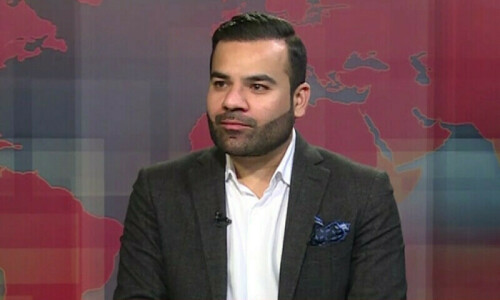
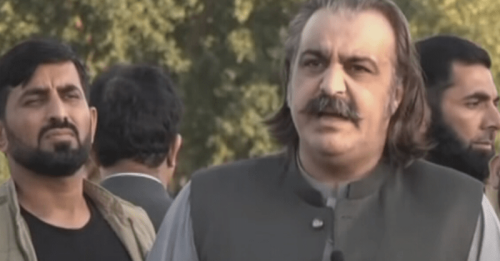

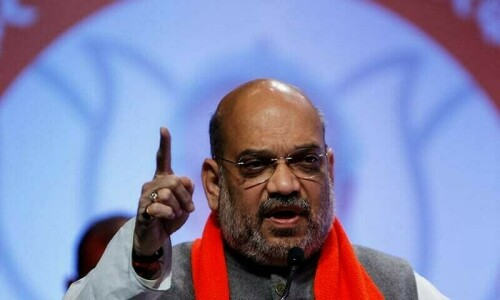



















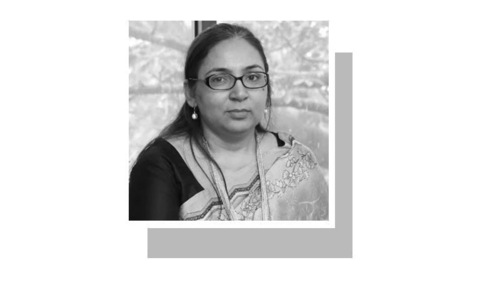
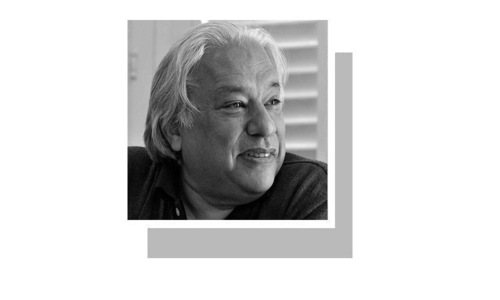

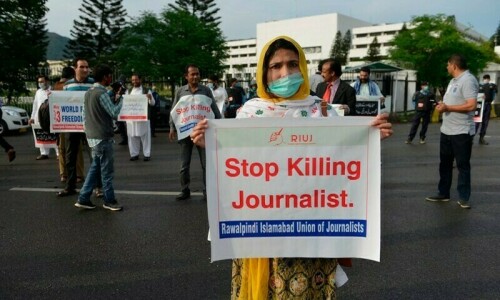


Dear visitor, the comments section is undergoing an overhaul and will return soon.